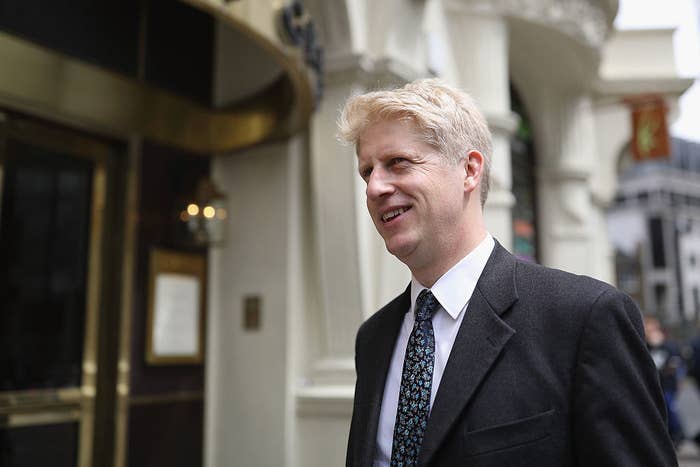
A government minister's plan to enforce "free speech" rules in universities is "completely ill-thought-through" and "unenforceable", and has been issued with "no guidance whatsoever on how it will work", according to the National Union of Students (NUS).
Jo Johnson, the minister for universities and science, made the comments in the wake of the launch of the Office for Students, a new body that will regulate the conduct of universities. He was announcing a consultation on the powers that the new regulator would have.
He said the new rules could lead to fines, suspension, or even deregistration if universities stifle free speech – possibly by allowing the "no-platforming" of controversial speakers.
Johnson told The Times that "no-platforming and safe spaces shouldn’t be used to shut down legitimate free speech," saying that, for instance, it was "preposterous" for the feminist writer and activist Germaine Greer to be no-platformed for her views on trans women. “She has every right, if invited, to give views on difficult and awkward subjects,” he said.
Three thousand students signed a petition to prevent Greer from speaking at the University of Cardiff in November 2015. Greer in fact gave her speech, despite the protests, albeit under tight security.
Amatey Doku, the NUS's vice-president for higher education, told BuzzFeed News that Johnson's comments were an attempt to distract from the government's problems surrounding higher education. "What you find is, when the government comes under pressure, in this case on tuition fees and funding of universities, it tries to distract from those issues," he said. "The current context is that the cabinet is split six ways on student funding.
"So we get completely ill-thought-through, unenforceable policies, and with no guidance whatsoever on how it will work."

He added: "The irony is that this body is called the Office for Students. It's set up to fight for students, and if you speak to most students their concerns are funding, finance, quality of teaching, student debt, and a huge mental health crisis in our universities.
"Most students aren't even aware of [the no-platforming debate] and for him to wage this culture war shows that this office doesn't have student priorities at heart." Only a small percentage of students attend talks like these, he added, so they would be unlikely to challenge many people's views "unless they're going to make these speeches mandatory". He expressed concern that Johnson's initiative could "incentivise universities to bring in far-right speakers just to tick this box".
Universities UK, the representative body for British universities, said in a statement that it was "absolutely crucial that universities remain places where controversial subjects are discussed and ideas challenged", but pointed out that there "is already a legal duty on the sector to secure free speech within the law and universities take these responsibilities very seriously".
It has previously warned that one threat to free speech on campus is the government's Prevent counterterrorism strategy, a fear echoed by Doku. "The government has done more to stifle free speech than students," he said. "[Johnson] hasn't spoken about how this will work with Prevent. Student unions tell us that Prevent causes the most anxiety when they bring in external speakers, in case their views don't align with British values. That's the big question, how they are going to work together."
At least one other academic has raised similar concerns since Johnson's announcement.
At my university, if we book an event including an external speaker, we are asked the following questions.
Not everyone shares these concerns. A spokesperson for the Russell Group of prestigious universities said they supported Johnson's aims, saying in a statement: "Freedom of speech is an essential part of academic debate and Russell Group universities take this very seriously indeed."
However, they noted that "student unions are independent of universities and will have their own policies on free speech. We would always encourage officers to ensure students have the opportunity to engage with people who hold different or challenging views.”
And Brian Cox, the professor of particle physics at the University of Manchester and a BBC television and radio presenter, tweeted his support for Johnson's initiative:
I support this initiative. It is the duty of Universities to produce graduates who understand & enjoy robust debate… https://t.co/DHgNfm1iAw
The Department for Education referred BuzzFeed News to Johnson's earlier comments outlining his proposals when contacted for a response to the NUS stance.
